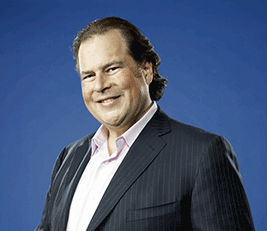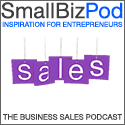Interview with Marc Benioff, founder of salesforce.com
Alex Bellinger asks Marc Benioff, founder & chairman of billion dollar cloud CRM business salesforce.com, about his entrepreneurial journey, inspiration & ethos.
With Google, Microsoft and a whole host of smaller players all heading for the clouds to offer software as a service over the internet, cloud computing is very much the present as well as the future.

"The best entrepreneurs believe their start-ups are deeply meaningful and rewarding endeavours." Marc Benioff, founder & ceo of salesforce.com
But it wasn’t always that way. Certainly not when Marc Benioff, the one time Apple programmer and Oracle hot shot, decided to quit his job working closely with Larry Ellison to create his own startup.
A little over a decade later and salesforce.com is a billion dollar business listed on the New York Stock Exchange and widely acknowledged as having blazed a trail for the cloud computing revolution.
When I got the chance to put some questions to Marc, I was most interested to hear what he had to say about his own entrepreneurial journey.
1. You literally dreamt up the idea for salesforce.com during a sabbatical of quite a spiritual nature. Are startups spiritual endeavours for entrepreneurs?
Everyone comes to their entrepreneurial epiphany in their own way. I think the best ones are spiritual endeavours in that they come from a place of deep thought and passion. The best entrepreneurs believe their start-ups are deeply meaningful and rewarding endeavours.
If you’ve ever read studies or seen the statistics on entrepreneurship, you see that indicators of entrepreneurial spirit do not include perfect grades, or certain scores on standardised tests, or Ivy League degrees (in fact many great entrepreneurs did not even complete college.)
I’m not against any of those factors – there’s significant merit to each of those achievements – but there’s one success factor that’s greater than all of the above combined. It’s passion.
That’s the pivotal ingredient that drives any entrepreneur as starting a company involves tapping into one’s entire being. Start-ups also require faith. Like any zealot, an entrepreneur must demonstrate unwavering conviction, especially in the toughest times.
2. How does a business maintain that startup fervour as it grows and in your case becomes a public listed company?
It’s a challenge to retain start-up energy as a company evolves, especially as it becomes public and has different responsibilities. We’ve had to make enormous changes—financial changes, leadership changes, organisational changes—to prepare to be the company we are today.
We’ve tapped people from larger companies whose experience we needed. Other talent, people who have been with us from the earliest days, have moved on.
There’s a part of me that misses how I once interviewed every hire, knew everyone’s name, and drove golf balls down empty halls with the team. But the other part of me appreciates that those halls are no longer empty, that we’ve built something beyond my greatest expectations together, and we’ve stayed true to who we are as a company.
Companies must change as they evolve. It’s the only way.
When it comes to fervour, or energy, or passion, though, I don’t think we’ve had to make sacrifices.
The culture we built—specifically our 1-1-1 integrated philanthropy model and our V2MOM management system—allows us to achieve quarter over quarter growth and allows us to stay aligned with our roots.
Even with nearly 4,000 people (compared to four people 10 years ago), we haven’t lost excitement or determination because each of us is doing more than a job: we are changing a industry and we are contributing to making a difference in the world.
3. You’ve been called the PT Barnum of the IT industry. Are the best leaders also showmen?
I have? I suppose I’ve been called a lot of things.
The best leaders do have a persona that fits with the company’s story and bolsters its brand. I don’t really think this is showmanship because it never works if it’s fake—the “character†must be heartfelt and authentic. You have to believe in what you are doing and believe what you are saying.
P.T. Barnum believed that his circus was “the greatest show on earth.†And, he worked tirelessly to make it happen. I’ve believed in the End of Software for more than 10 years. I wasn’t wearing fatigues my first day—that persona evolved over time—but I’ve always been ready step forward and fight for our mission.
Sure, 10 years ago, five years ago, some people said that it was all grandstanding. They said the statement was bold, but look around, the end of software is actually here. Now, every major analyst firm sees cloud computing expanding its share of the overall IT market.
We used to be alone (and it was challenging work to gain acceptance for this new idea), but now there is a robust marketplace of cloud applications and now cloud platforms.
Customers today see a choice. It’s incredible to consider what’s happened in such a short period of time, yet I know that we are just beginning to prove how far cloud computing can go.
4. The War on Software has been a powerful, defining differentiator for salesforce.com. Where do you find your next revolution, your next hook to set you apart and avoid becoming the new establishment?
It’s a good question. Staying relevant is key. When you’re telling your story, you better have a modern story to tell. If I were still saying the same thing I was saying 10 years ago, it would not be that interesting.
The next new frontier is collaboration. Much as we once learned from consumer sites such as Amazon.com and eBay, we’ve all learned a tremendous amount from the latest consumer development, the rise of social networking.
Businesses are beginning to take notice. Executives are watching these new services and asking, “Why do I know more about strangers on Facebook than my own employees? Why is it so easy to follow Ashton Kutcher on Twitter, but I can’t follow a key deal? Why can a picture tell me that I have been tagged, but a document in my company can’t tell me it has been updated?â€
There is a very compelling immediacy to services like Facebook and Twitter. One look and you know what’s going on in your whole world. I think that’s exactly what we want from our business technology today.
Consumer services have outpaced enterprise technology, and businesses aren’t going to wait for the traditional software companies to catch up.
The consumerisation of IT and the growing influence of social networking are going to be major trends that continue to unfold over the next few years. Customers want new functionality, but they don’t want the traditional complexity that has marred products in the past.
5. Who has been your greater influence, MC Hammer or Steve Jobs and why?
They’ve played different roles. There have been other influences too: Ammachi; Billy Graham; Larry Ellison; Colin Powell.
When I think about building a business, I try to learn from some of the best people, regardless of the industry. These people have shared innovative ideas and inspired new thinking that has helped us become one of the fastest-growing companies in the technology industry.
I’ve been inspired by what Steve Jobs was doing since I was in college. I spent a summer writing some of the first native assembly language for the Macintosh. I loved working at Apple, and the fruit smoothies in the fridge, the pirate flag on the roof, and then seeing Steve Jobs walk around and motivate the developers.
Apple was always doing something different. It’s not by accident that its products look like nothing else out there. Their dedication to innovation (and delivery of it) is what inspires customer excitement and loyalty.
When we started salesforce.com in a rented apartment I put a picture of the Dalai Lama over the fireplace and another of Albert Einstein on the wall. Both were part of Apple’s “Think Different†campaign.
I had the opportunity to meet MC Hammer once we already started salesforce.com. He came into the office and taught us about how the music industry uses “street teams†to market new songs. They actually get young people organised in local communities and get them out there generating excitement.
The street team concept was something we were able to directly pick up and use at salesforce.com. We went on tour and created a programme that allowed us to extend our message and get customers out and selling for us on a local level. The inclusion of customers in marketing has become a key part of our brand.
6. You talk about hiring the very best, but you’ve also taken pride in moulding raw talent. What % of new hires don’t work out and has DNA/attitude proved to be a more successful measure than aptitude?
Really, you need both attitude and aptitude. That said, early on we saw that many of the individuals that demonstrated raw talent (but didn’t have much related experience) were better than the more seasoned people we hired. (This was also because many of the people in our industry had been brainwashed by the client-server model and that clashed with our culture.)
The secret to successful hiring is this: look for the people who want to change the world.
These are the people who will make the biggest contributions because they really care about making something better. We value a desire to change the world via technology and an interest in giving back to the community.
Just as universities look for candidates with diverse experiences on their resumes, with a commitment to giving back, and with a point of view, we look for well-rounded people who possess impressive skills and who can easily adapt and who have a desire to do something meaningful.
7. Should entrepreneurs build philanthropy into their businesses from the start?
Absolutely. The easiest way to build an integrated philanthropy programme is to do it from the very beginning.
When we first started salesforce.com, my co-founders and I set aside one percent of our equity, one percent of paid employee time, and one percent of our product earmarked for a separate non-profit foundation. As our company grew, so would the contributions made by our foundation.
We call this the 1-1-1 Model and it has become an integral part of our culture and company.
New hires experience how it works during their first week on the job. The orientation programme includes a chance to help replant a forgotten park, paint a school, or help deliver services to San Francisco’s homeless.
We give employees paid time off each year to volunteer supporting the charities of their choice. It has had a powerful effect, with more 165,000 hours donated so far.
Because this model is embedded in our company DNA, and because it continues to be wholeheartedly embraced by our employees, we’ve been able to maintain our commitment in this challenging environment.
We just raised our matching gift programme from $500 to $1000 per employee, per year. Employees are excited about that and we’re excited to show that as a company we care about what’s important to them and we want to help them make a difference.
When we started with our 1-1-1 model 10 years ago, people asked me, “Why are you doing this?” Now they ask, “Can you help me do it at my company, too?” Google has adopted part of our model and the potential of its programme is astounding.
Other companies, iRobot, LiveOps, and BlueWolf, all incorporate parts of the model. Just last night, I received an email from Bradley Whitchurch, the CEO of Seal Shield, who implemented our 1-1-1 model for 2010. I can’t wait to see what they achieve.
In the future, I think that shareholders will pressure companies to articulate their corporate social responsibility programmes. Economic recoveries are historically times of robust small business formation. (I know this first hand!).
Entrepreneurs must seize the opportunity in front of them and understand the role that innovation, creativity, and altruism will play in securing a brighter future. It is my hope that every small business will think about adopting our model or consider creating a similar one of its own. It’s best to start from the beginning, but it’s never too late.
8. Personally, how have you dealt with your darkest hours as an entrepreneur?
We’ve been very fortunate, but of course there have been some dark moments. It’s necessary to work past the moment, though, and understand the bigger picture. I also can’t underestimate the importance of family and friends, who provide tremendous support.
In general, pioneering a new idea does bring with it a number of challenges and critics, and at times, it invites a certain amount of doubt. However, I always believed that this idea would work. It was better for customers. And even if it wasn’t yet accepted, it made common sense.
That belief helped me maintain my optimism. So did some of the lessons I learned from Larry Ellison and my time at Oracle. Even in Oracle’s darkest days, Larry’s resolve never faltered. He said, “think of it as you want it, not as it is.†Always thinking ahead to the future has allowed me to stay focused on our vision—and what we believed was most important.
9. You said you were in danger of becoming an Oracle ‘lifer’. Are you now an entrepreneurial ‘lifer’?
Yes, I suppose that might be my fate, though luckily this time there’s no danger! I enjoyed my time at Oracle and I learned a lot from the very best, but I knew that I was an entrepreneur and destined to do something different. I started my first company when I was 15 and I’ve always loved building something from nothing, and finding a new and better way to do things. I hope I’m fortunate enough to spend the rest of my life doing that.
*********************
Marc Benioff’s book Behind the Cloud tells the salesforce.com story, with plenty of practical advice on execution, strategy and scaling a business. Well worth a read for any budding entrepreneur with big ideas.
Leave a comment
Share & Comment
Related Posts
SME News
- Entrepreneurs 2012 with President Bill Clinton 13-16 November
- IDCEE 2012. Internet Technologies and Innovations
- Nurturing the next generation of social entrepreneurs
- Get Britain Trading needs you
- Manufacturing gains, but economy fragile
- Minister to answer webcast questions on apprenticeships
- Staff beat £230 million a day cost of big freeze
 SME Blog
SME Blog
 6 comments
6 comments












Good interview – His comments about business applications being behind social networking/consumer apps is really interesting – i wonder what they will come out with based on these principles?
Thanks Phil. I think the recently launched ‘Chatter’ and Service Cloud 2 give us a good indication of where salesforce.com may be heading in this area.
Nice interview. I’d have thrown a few hard balls but that’s me. Nice to see you use my PT Barnum moniker
Thanks Dennis – couldn’t remember where I’d read the PT Barnum moniker. Hat tip!
interesting aspect that startups might be an expression of a spiritual calling within the entrepreneur.
Agreed Priyanka, it’s a subject worth some exploration. Have you encountered other entrepreneurs who have expressed a similar motivation?